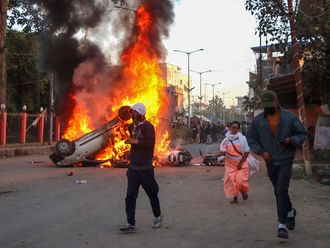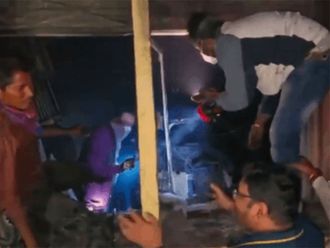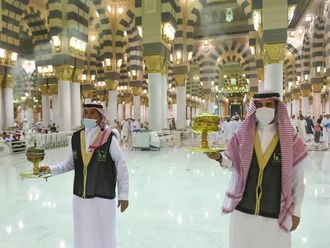Panaji: Goa Chief Minister Manohar Parrikar on Tuesday said that he would not listen to central leaders of his BJP if they press him to sacrifice Goa’s interest in the ongoing water dispute with the party-ruled Karnataka.
“I will not listen to my national leaders on this issue to sacrifice interest of Goa,” Parrikar of the Bharatiya Janata Party (BJP) Tuesday told the monsoon session of the Goa legislative assembly, while replying to a calling attention motion.
Independent legislator from Fatorda Vijay Sardesai in his calling attention motion claimed that Karnataka had almost completed the construction of a dam in the Belgaum district, which was aimed at diverting the water of the Mhadei river (which flows into Goa and is referred to as the Mandovi river) to other parts of Karnataka.
Sardesai said that Parrikar should seek a political solution to the water dispute, especially because the BJP was in power both in Goa and Karnataka.
“Each state is fighting for its right for water. Karnataka is fighting for its own right and we are fighting for our own right. The dispute is being heard by the central tribunal,” Parrikar said.
“The ongoing works of the state of Karnataka of constructing an inter-connecting channel between the Kalsa Nallah and Malaprabha river being against the interests of Goa, the same are being regularly monitored by the officers of Goa...”
Karnataka is building a water project, including a dam, across the Mhadei river, to which the Goa government has objected, saying it will lead to the river getting dry and threatening the state’s lifeline.
The Mhadei river originates in Karnataka and meets the Arabian sea at Panaji. While the river travels 28.8 km in Karnataka, it is 81.2 km in length in Goa.
Karnataka seeks to replenish its parched Malaprabha basin and has a plan to construct seven dams across the river, aimed to divert the river’s water.
Both the Goa government and civil society groups in the state have said that diverting the waters of the Mhadei/Mandovi river would sound a death knell to the northern areas of the state, which are dependent on the river for fishing, irrigation and potable water supply.












